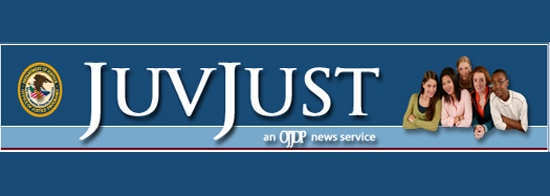
Congress enacted the Juvenile Justice and Delinquency Prevention Act in 1974 and ushered in a new era of enlightenment in juvenile justice. The original law provided for the deinstitutionalization of status offenders requiring that youth who are runaways, truants, or curfew violators cannot be detained in juvenile detention facilities or adult jails.
The law also provided for so-called “Sight and Sound” separation stating that if juveniles are put in an adult jail or lock up under the limited circumstances the law allows for, they must be separated from adult inmates.
The Disproportionate Minority Confinement provision required states to address the issue of over-representation of youth of color in the justice system.
THE OFFICE OF JUVENILE JUSTICE AND DELINQUENCY PREVENTION
In the same legislation, Congress established the Office of Juvenile Justice and Delinquency Prevention and reauthorized the JJDP Act in 2002. The OJJDP’s vision statement reads as follows:
Vision Statement:
“The Office of Juvenile Justice and Delinquency Prevention envisions a nation where our children are healthy, educated, and free from violence. If they come into contact with the juvenile justice system, the contact should be rare, fair, and beneficial to them.”
Mission Statement:
The Mission Statement goes further when it says: “…OJJDP supports states and communities in their efforts to develop and implement effective and coordinated prevention and intervention programs and to improve the juvenile justice system so that it protects public safety, holds justice-involved youth appropriately accountable, and provides treatment and rehabilitative services tailored to the needs of juveniles and their families.”
ENLIGHTMENT
When it established and reaffirmed The Juvenile Justice and Delinquency Prevention Act, society expressed deep insight into the dilemma of juvenile justice. How do we hold our children accountable for their actions and teach them to understand that their good is in concert with, not in opposition to, the common good?
The Office of Juvenile Justice and Delinquency Prevention states that children are not criminals until they reach the age of reason. When they become involved with the criminal justice system it is most often because they have been taught antisocial survival skills. If we treat juveniles like criminals and simply remove them from society we abandon them to an incarcerated culture that will teach them further antisocial survival skills. The OJJDP is constantly developing and promoting rehabilitation programs designed to - “provide treatment and rehabilitate services tailored to the needs of juveniles and their families.”
CASE WORKERS
Case workers are the key to these programs. When juveniles become involved with criminal justice they need a guide to help them navigate the unfamiliar, threatening environment they find themselves in - a mentor who will stay with them throughout the entire experience.
Like all caseworkers, however, juvenile justice caseworkers are overloaded. “What keeps me up at night is that something will fall through the cracks and one of my juvenile offenders will be lost to the system,” one juvenile justice caseworker told me recently. “Juvenile justice is a complex world of courts, lawyers, bookings, detention, and sentencing that overwhelms even the street-smart juveniles I have in my care. These children must not fall through the crack.”
FAMCare
Global Vision Technologies has created a juvenile justice information management platform to help caseworkers keep on top of the mountain of detail that accompanies each juvenile justice case over an extended period.
FAMCare customizes intake forms, maintains dynamic calendars, manages referrals, alerts the caseworker to critical processing steps, and provides a complete case file for each client. It is a comprehensive, secure, information management system that allows web-based access to critical data in order to provide services to youth involved in the multiple systems. FAMCare can handle many other functions, as well, such as delivering critical workflow, reporting and can include an entire billing suite for those accounting functions such as residential census and fee for service billing.
Gone are the “good old days” of paper files, sticky notes, conflicting court dates for different clients, and late report filings that result in “falling through the cracks”.

